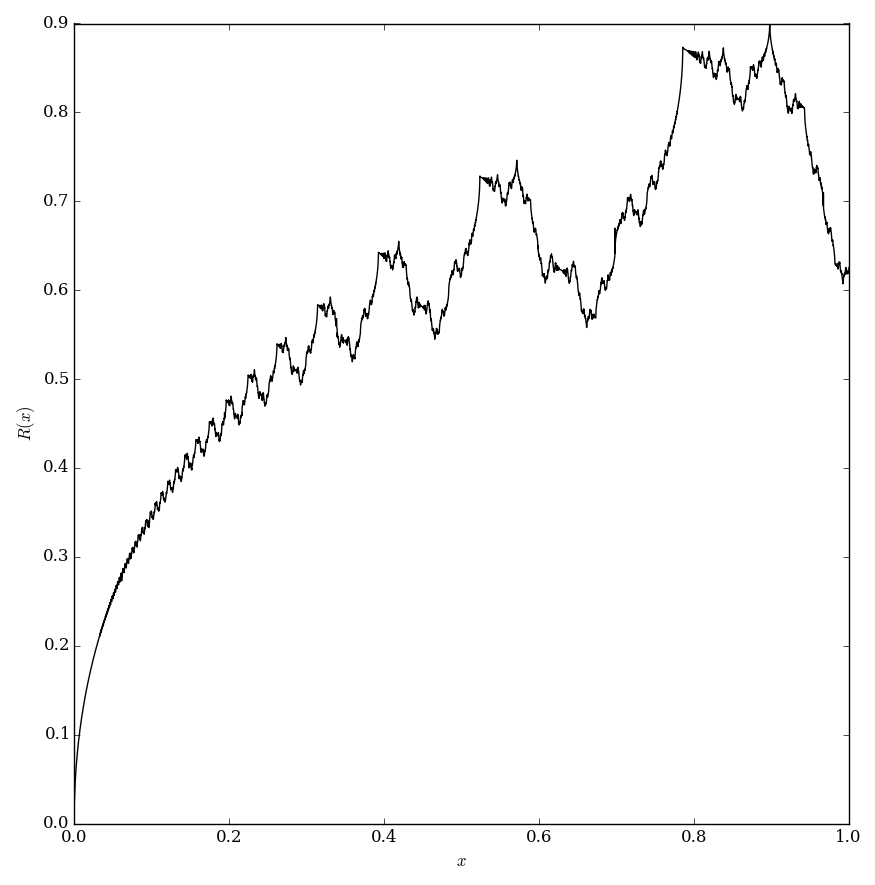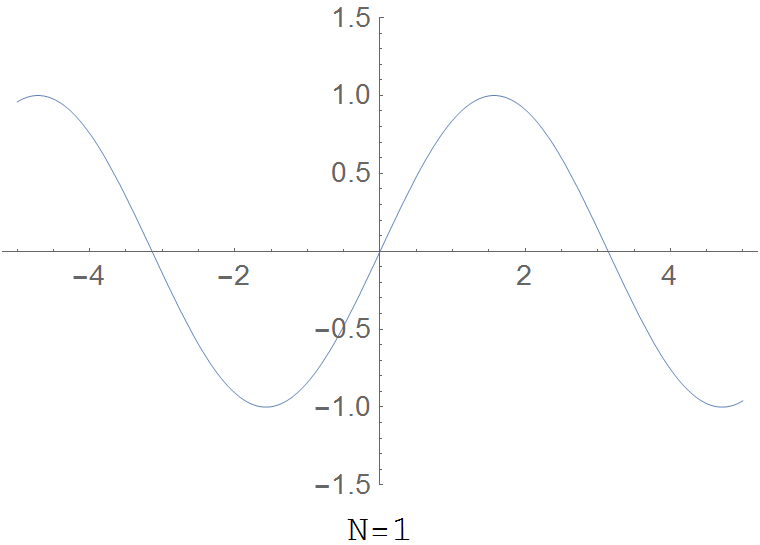Difference between revisions of "Riemann function"
From specialfunctionswiki
| (One intermediate revision by the same user not shown) | |||
| Line 10: | Line 10: | ||
=Properties= | =Properties= | ||
| − | + | [[Riemann function is continuous]]<br /> | |
| − | + | [[Riemann function is almost nowhere differentiable]]<br /> | |
| − | |||
| − | |||
| − | |||
| − | |||
| − | |||
| − | |||
| − | |||
| − | |||
| − | |||
| − | |||
| − | </ | ||
=References= | =References= | ||
[https://pure.ltu.se/ws/files/30923977/LTU-EX-03320-SE.pdf]<br /> | [https://pure.ltu.se/ws/files/30923977/LTU-EX-03320-SE.pdf]<br /> | ||
| + | |||
| + | [[Category:SpecialFunction]] | ||
Latest revision as of 03:26, 6 July 2016
The Riemann function is the function $R \colon \mathbb{R} \rightarrow \mathbb{R}$ defined by $$R(x)=\displaystyle\sum_{k=1}^{\infty} \dfrac{\sin(k^2 x)}{k^2}.$$
Properties
Riemann function is continuous
Riemann function is almost nowhere differentiable

